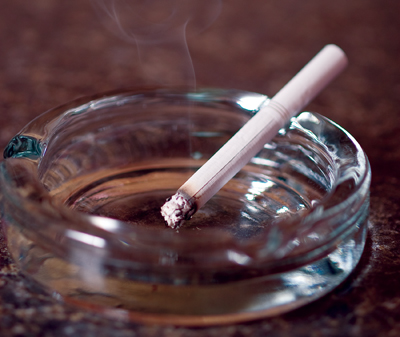Thank God for California’s sinners. I don’t mean sinners in the biblical sense. I mean sinners in the political correctness sense – people who smoke, drink alcohol, spend easily, eat too much, drive vehicles that get only few miles per gallon, and use a lot of energy, among other nasty habits that are all perfectly legal. If it were not for these societal sinners, our public institutions would be flat broke because the state has built a tax system that often relies on those sinners for income. In FY 2010-2011, the California Board of Equalization (BOE) racked up total revenues of $53.7 billion from the taxes they administer.
Alcohol was a big item. The state collected alcohol excise taxes of $344 million; $158 million on beer and wine; and $176 million on distilled spirits. The BOE even published annual consumption data: 18 gallons of beer, 3 gallons of wine, and 1.4 gallons of distilled spirits per capita. For some reason they chose to use the entire population, including infants and toddlers, in those calculations. Adjust for the adults and teetotalers and someone is putting away a lot of brew.
Smokers, all those folks congregating outside the office buildings, are doing their share; cigarette and tobacco products brought in excise taxes of $911 million. Obviously, this does not count the billions in tobacco settlement money that the political entities have used for just about everything except tobacco-related medical care. Let’s face it. All the government wanted was the money.
In case you forgot about California’s 2010 Fuel Tax Swap gimmick, I’ll go over it. The 6 percent statewide sales tax on gasoline was eliminated, but gasoline excise taxes were raised 17.3 cents to a total of 35.3 cents per gallon, adjusted annually. The bottom line is that gasoline taxes are now 43 cents a gallon, including some prepaid sales taxes. It’s the highest state fuel tax in the nation by leaps and bounds. This change, and skyrocketing fuel prices, doubled the 2009-2010 motor vehicle fuel excise tax revenues to $5.2 billion in 2010-2011.
Taxes on fuel also fueled Hollister’s 1 percent transaction tax, bringing in more than any other commodity and making gas pumps the city’s biggest revenue generator. Remember, if you drive less or get a more fuel-efficient vehicle to reduce your costs the transportation folks will be lobbying to raise your taxes in some other fashion – after all, they have to get paid too; heads they win, tails you lose.
Now is a good time to discuss the big dog, $42.5 billion worth of state collected sales and use taxes, including local revenue fund taxes, public safety fund taxes, fiscal recovery fund taxes, city and county taxes, county transportation taxes, special district taxes, and fees.
You need insurance and the government needs money – a perfect marriage. Insurance taxes brought in a whopping $1.9 billion. Did you use electrical energy? Thanks for the $57 million. Natural gas allowed the state to burn up $597 million in surcharges, but the timber tax collected only $6.4 million. The Emergency Telephone Users’ Surcharge was $86 million, and last, but not least, was 11 categories of hazardous substances taxes and other environmental fees, $710 million.
The BOE does not handle property or income taxes, but for those who believe other taxes are in recession consider this; the crazy pre-crash boom year of 2004-2005 produced only $49.9 billion in sales, use, and excise taxes. The state is doing almost $4 billion a year better than that now – and the taxpayers are still doing worse.
Marty Richman is a Hollister resident.










